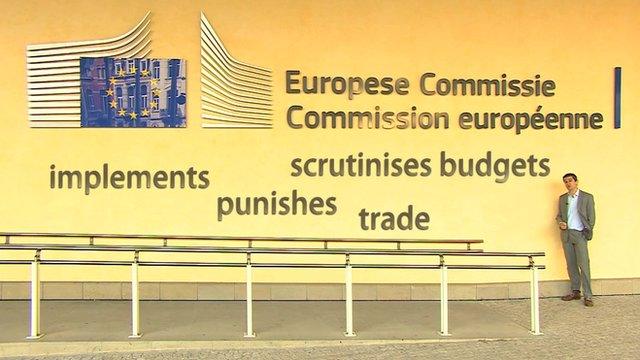European elections: Rivals for EU Commission president
- Published
For the first time rivals have gone head-to-head live on TV in the hope of getting the top job in Brussels: president of the European Commission.
The big transnational party groups in the EU have nominated their candidates to run the Commission. But later this year the EU governments will have their say - and could well come up with a different shortlist.
The mandate of Commission President Jose Manuel Barroso expires in November.
The biggest TV debate was on 15 May, hosted by the European Broadcasting Union. It was shown on 49 TV channels and in 24 languages. The debates are part of the political campaigning ahead of the 22-25 May European elections.
So who are the candidates?
Jean-Claude Juncker (Luxembourg) - centre-right European People's Party (EPP), external
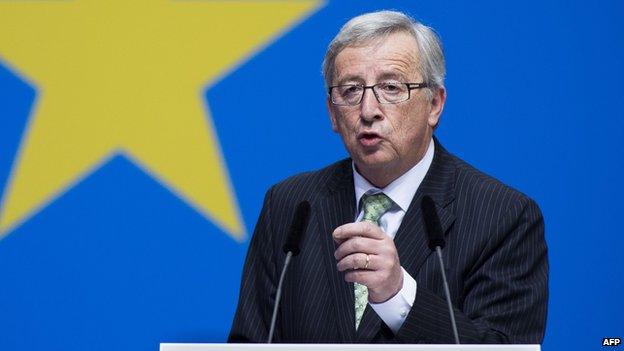
From 1995 to 2013 Mr Juncker was Prime Minister of Luxembourg - a record tenure for a prime minister in the EU.
He is a veteran of EU politics - and of the eurozone crisis. He chaired the Eurogroup, the eurozone finance ministers who had to make tough decisions about struggling debt-laden countries, notably Greece, Cyprus, Ireland and Portugal.
He is an ardent believer in EU integration - many call him a "federalist". He played a big role in the launch of the euro.
He has defended EU subsidies for farmers, one of the EU's biggest budget areas, saying agriculture employs 30 million Europeans.
He also wants the EU to reach a free trade deal with the US, saying it will bring huge benefits to Europe.
Born in 1954, he grew up in a Europe still struggling to rebuild after World War II. He supports the EU's social justice agenda, wary of allowing the free market to dictate policy.
Commentators say he would be a strong contender for European Council President, if a different EPP candidate emerges for the top Commission job.
Martin Schulz (Germany) - centre-left Socialists and Democrats (S&D), external
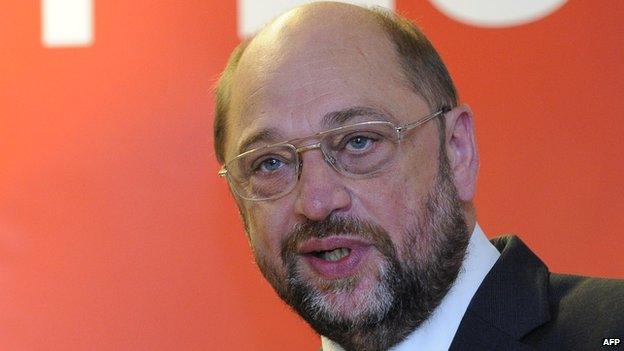
Like Mr Juncker, the outgoing president of the European Parliament is committed to deeper EU integration.
Martin Schulz was born near Aachen in 1955 - a region at the heart of the European project. In his youth he worked as a bookseller and then rose through the ranks of the German Social Democrats (SPD).
Injury dashed his hopes of becoming a professional footballer, but he was elected to the European Parliament in 1994.
In 2003 he famously clashed in the parliament with former Italian Prime Minister Silvio Berlusconi, who compared him to a Nazi concentration camp guard. The row escalated into frosty relations between Germany and Italy.
Mr Schulz has championed human rights, reform of financial markets and greater efforts to promote growth in the EU, away from austerity.
In the 15 May TV debate he praised the euro for having delivered record low inflation in Europe. Many economists however consider very low inflation - as in the EU currently - to be a mixed blessing.
Guy Verhofstadt (Belgium) - liberals (ALDE), external
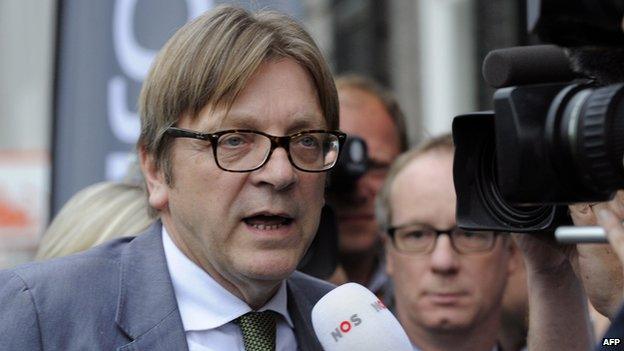
Born in 1953, Guy Verhofstadt is a standard-bearer for federalists in the EU.
He served as Belgian prime minister in 1999-2008. Before that he held various posts in Flemish politics and used to hold more neo-liberal or "Thatcherite" views.
During the eurozone crisis he has urged the European Commission to take bolder action, exercise economic governance and steer the member states closer together. He advocates a European Monetary Fund and issuance of common "eurobonds" to bridge the gulf between the EU's debtors and lenders.
The EU needs more cohesion, he argues, because it faces fierce competition from the US, China, India and other powers in the global economy.
In the 15 May TV debate he deplored the fact that the EU had taken in far fewer Syrian refugees than Syria's Middle Eastern neighbours.
In 2004 his name was put forward as a possible Commission president, but the job was given to Mr Barroso. The UK was among the countries which blocked Mr Verhofstadt's bid.
Ska Keller (Germany) - Greens, external
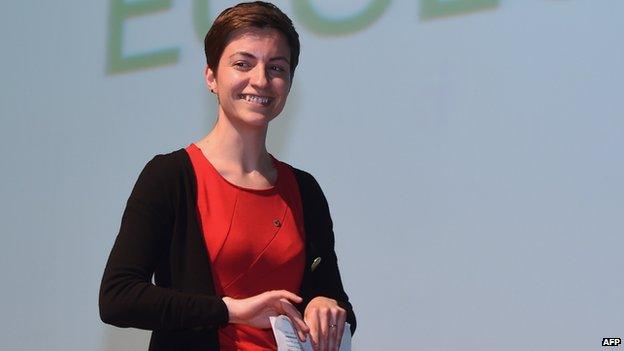
A rising star in the Green movement, Ska Keller is by far the youngest candidate for the Commission presidency.
She took part in the two biggest TV debates - on 28 April and 15 May - but the Greens actually have two nominees for the presidency - the other is veteran French farmers' champion Jose Bove.
Aged 32, Ms Keller was born in former East Germany, near the Polish border.
She was elected an MEP in 2009 and has specialised in issues affecting migrants, youth unemployment and fair trade.
She got loud applause in the Brussels hall on 15 May when she criticised bankers' behaviour. In general she appeared to have strong support in the audience, and got cheers on several occasions.
She also condemned arms deals between some EU countries and Russia - despite the Kremlin's annexation of Crimea. France has not halted its sale of two new warships to Russia.
And she deplored the fact that the EU loses about 1tn euros (£811bn; $1.3tn) annually through tax evasion - about 8% of total EU GDP. Her statement was derived from official estimates., external
Alexis Tsipras (Greece) - European Left, external
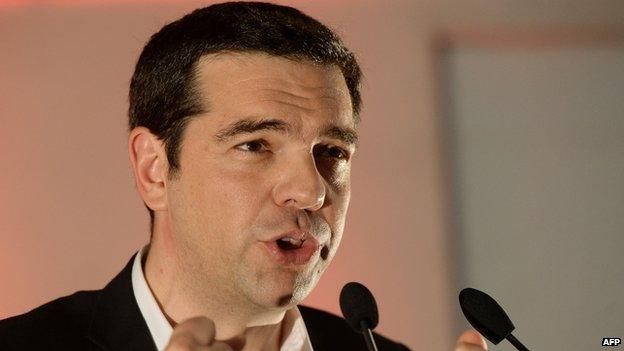
The leader of Greece's main opposition bloc - Syriza - heads a broad coalition of left-wing European parties in next month's elections.
A swing to the left in the elections could put him in a strong bargaining position vis-a-vis the S&D bloc - and that could boost the chances of Martin Schulz.
Syriza stormed to second place in the Greek elections in 2012, as many voters abandoned the traditional parties in anger at the economic meltdown and massive job losses.
Born in Athens in 1974, Mr Tsipras trained as a civil engineer and was a communist in the 1980s.
He opposed the bailout terms imposed on Greece by its international creditors. He wants public services nationalised and blames free market policies for the hardship suffered by millions of Greeks.
In the 15 May debate he denounced "catastrophic austerity policies". He said what had happened in Greece was "not a success story but a social tragedy that shouldn't be repeated anywhere in Europe".
- Published25 April 2014
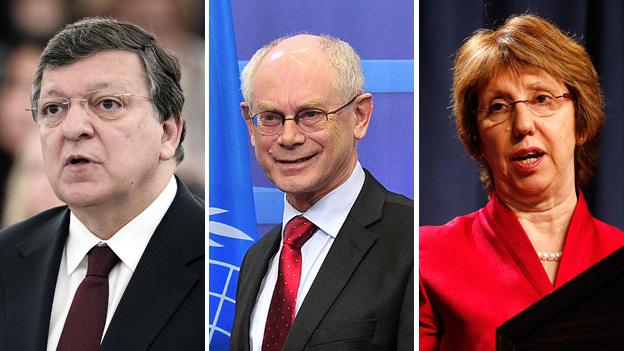
- Published26 February 2014
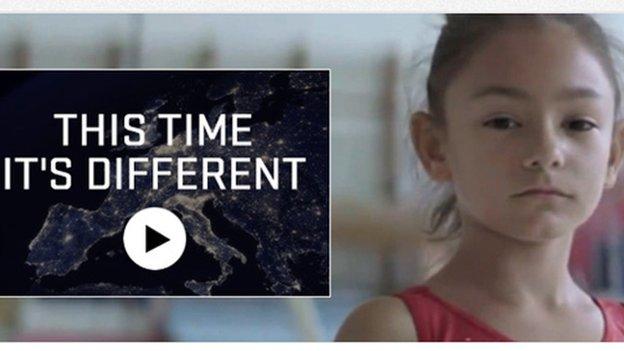
- Published26 July 2013
